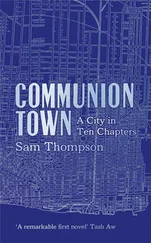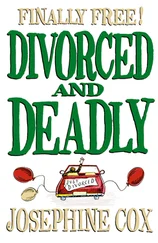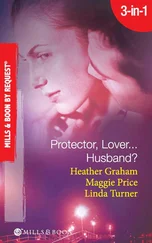Frank Tallis - Deadly Communion
Здесь есть возможность читать онлайн «Frank Tallis - Deadly Communion» весь текст электронной книги совершенно бесплатно (целиком полную версию без сокращений). В некоторых случаях можно слушать аудио, скачать через торрент в формате fb2 и присутствует краткое содержание. Жанр: Исторический детектив, на английском языке. Описание произведения, (предисловие) а так же отзывы посетителей доступны на портале библиотеки ЛибКат.
- Название:Deadly Communion
- Автор:
- Жанр:
- Год:неизвестен
- ISBN:нет данных
- Рейтинг книги:3 / 5. Голосов: 1
-
Избранное:Добавить в избранное
- Отзывы:
-
Ваша оценка:
- 60
- 1
- 2
- 3
- 4
- 5
Deadly Communion: краткое содержание, описание и аннотация
Предлагаем к чтению аннотацию, описание, краткое содержание или предисловие (зависит от того, что написал сам автор книги «Deadly Communion»). Если вы не нашли необходимую информацию о книге — напишите в комментариях, мы постараемся отыскать её.
Deadly Communion — читать онлайн бесплатно полную книгу (весь текст) целиком
Ниже представлен текст книги, разбитый по страницам. Система сохранения места последней прочитанной страницы, позволяет с удобством читать онлайн бесплатно книгу «Deadly Communion», без необходимости каждый раз заново искать на чём Вы остановились. Поставьте закладку, и сможете в любой момент перейти на страницу, на которой закончили чтение.
Интервал:
Закладка:
‘And would you like a pastry?’ Liebermann asked Amelia.
The waiter interrupted: ‘Could I recommend the Scheiterhaufen? It really is quite exceptional.’
‘Well,’ said Amelia. ‘I defer to your expert opinion. Scheiterhaufen.’
Her German was perfect, with the merest trace of an English accent.
And for you, sir?’
Liebermann shrugged and smiled.
‘The same …’
‘A very wise decision, sir.’
They spoke a little about the concert, and Amelia remarked that music — being the most abstract of the arts — presented the uninitiated with a unique conversational challenge.
‘Oh, I don’t know,’ said Liebermann. ‘Music can befelt as well as understood. It is always possible to discuss its effects, even if one has little or no technical knowledge.’
‘Indeed,’ said Amelia. ‘But I find conversations of that kind rather unsatisfying. A discussion of subjective impressions cannot progress very far: there can be no meaningful argument or resolution because the sine qua non of dialogue is a framework of agreed reference points.’
Amelia’s eyes caught the lamplight and transformed it into something vital and mysterious. Her companion was momentarily arrested by the flecks of electric blue that appeared in her irises.
‘Then perhaps you had better take up an instrument?’
‘Oh … I couldn’t.’
‘Why not?’
‘I am far too absorbed by my medical and scientific studies. And without adequate time to practise I would play very badly.’
They talked a little about Amelia’s courses, her continuing interest in diseases of the blood, and her growing enthusiasm for pathology. The latter was not so very surprising, as the medical faculty was famously obsessed with obtaining accurate post-mortem diagnoses.
‘Yes,’ said Liebermann.’ Pathology is a fascinating area of study; however, when I was a student I could not help feeling that some of the professors believed that the job of healing patients was quite incidental to the practice of medicine, and that only autopsies mattered. A different generation, of course, but it is a sobering thought that in their student days treatment was actively discouraged because it might influence the natural progression of symptoms and mislead the pathologist. I was told — and I fear that this might not be apocryphal — that on some wards, the only medicament prescribed was cherry brandy.’
Amelia Lydgate tilted her head.
‘That might be so, yet I cannot help but admire their singularity of purpose. The advances we enjoy today would not have been possible without their work. I believe that Carl von Rokitansky performed more than eighty-five thousand autopsies.’
The waiter returned with their coffee, tea and scheiterhaufen, which was served hot and exuded a potent fragrance of vanilla, cinnamon and rum. The thick slices of bread were sprinkled with raisins and icing sugar and were dripping with molten apple puree.
‘I have heard,’ Amelia continued, ‘that there is a rather interesting pathologist favoured by the police. Professor Mathias?’
‘Indeed.’
‘Does Inspector Rheinhardt consult him?’
‘Yes, although Professor Mathias is a rather unorthodox and intuitive pathologist. His critics describe him as eccentric. His enemies say he is mad.’
‘I would very much like to see him at work.’
‘Inspector Rheinhardt would not object to your presence at a police autopsy; however, I have no idea what the professor will say. He is somewhat unpredictable. Do you want me to ask Rheinhardt?’ I can do that for you at least.’
‘If it isn’t too much trouble,’ said Amelia. ‘Thank you.’
Liebermann tasted the Scheiterhaufen and was glad that he had accepted the waiter’s recommendation.
‘I read the report concerning the murder of Adele Zeiler in the Zeitung.’ said Amelia.
‘Yes,’ Liebermann replied. ‘A dreadful business.’
‘Is it one of Inspector Rheinhardt’s cases?’
Liebermann nodded, his mouth still full.
‘The article said that the perpetrator is expected to claim more victims.’ Amelia hesitated before adding: ‘I was permitted last year to help with a security office investigation. Would you consider allowing me to do so again?’
Liebermann felt uneasy. He instinctively wanted to protect her from anything associated with sexual violence. She seemed to read his thoughts: ‘Doctor Liebermann, this crime represents a terrible abuse of my sex. As long as this fiend is free, no woman can walk the streets of Vienna without fear. I feel obliged to offer assistance, not only out of recognition of my civil duty but also from a deep sense of sororal sympathy. You will be so kind — I trust — as to inform Inspector Rheinhardt of my readiness?’
The young doctor smiled, touched by Amelia’s courage but also slightly discomfited by the militancy of her language. She had obviously been immersing herself in the literature of the women’s reform movement.
‘Of course,’ he replied.
Liebermann took another mouthful of scheiterhaufen, his enjoyment of which found a corresponding quintessence in Amelia Lydgate’s satisfied expression.
13
Kristina Vogl sat at her dressing table, looking through the day’s post. The letters were mostly expressions of gratitude from friends and associates whom she had invited to the grand opening of her salon. Halfway through the pile she came across an envelope made of cheap, thin paper which she set aside. After reading her correspondence, she tied it all together with a red ribbon and placed the bundle in the lowest of her dressing-table drawers. Picking up the envelope she had set aside, she studied the handwriting and after a lengthy pause began to tear the paper into thin strips. She then tore each strip into little pieces, and sprinkled the resulting confetti into a wicker basket.
She caught sight of herself in the mirror.
The cast of light had placed shadows under her eyes. She tested the skin — pulling it down to make sure that the discoloration was an illusion.
Journalists had been generous in the society pages. An attractive woman: that was how most people — she understood — would choose to describe her. Neverthless, she was acutely aware of the ravages of time. An ‘attractive’ woman could become virtually invisible to the opposite sex within the space of a few unkind years. She had already marked the first signs of her falling stock. Kristina was a keen student of human behaviour and had learned to read men’s minds by watching their eye movements. Even an immature girl like her secretary Wanda — with her bad posture and rounded features — could deprive her of the first admiring glances that she had formerly taken for granted.
Kristina looked into her basket and, on seeing the remains of the unread letter, screwed up some writing paper which she placed strategically over the waste for the purpose of concealment. It was an unnecessary precaution, but old habits were difficult to break. Diligence cost nothing.
Rising from her chair, Kristina crossed the room and got into bed. She reached out to turn off the electric lamp — the bulb of which was hidden by a floral shade — but her action was arrested by a gentle, deferential knock.
The soft percussion was coming from her husband’s bedroom that adjoined her own.
‘Come in,’ Kristina called out.
The door opened, revealing the figure of Doctor Heinz Vogl. He was a man in his late middle years, with significant amounts of grey in his well-trimmed beard and moustache. He had taken off his jacket but had not removed his waistcoat. His gold watch chain was conspicuously bright against the charcoal-grey fabric.
Читать дальшеИнтервал:
Закладка:
Похожие книги на «Deadly Communion»
Представляем Вашему вниманию похожие книги на «Deadly Communion» списком для выбора. Мы отобрали схожую по названию и смыслу литературу в надежде предоставить читателям больше вариантов отыскать новые, интересные, ещё непрочитанные произведения.
Обсуждение, отзывы о книге «Deadly Communion» и просто собственные мнения читателей. Оставьте ваши комментарии, напишите, что Вы думаете о произведении, его смысле или главных героях. Укажите что конкретно понравилось, а что нет, и почему Вы так считаете.












